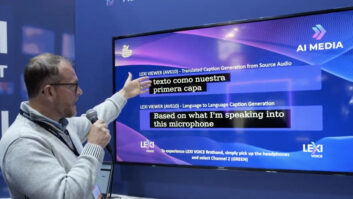A study of how the media and broadcast industry feels about artificial intelligence (AI) has
revealed most media and broadcast companies view its adoption as a positive, while also
expressing a “wait and see” approach to its implementation.
The research, carried out by Caretta Research on behalf of TVBEurope and TV Tech, shows
many broadcasters currently use AI in “back office” processes, with 85 per cent of respondents stating they believe AI will have a “significant impact” on the media and broadcast industry, particularly when it comes to transforming the economics of their business.
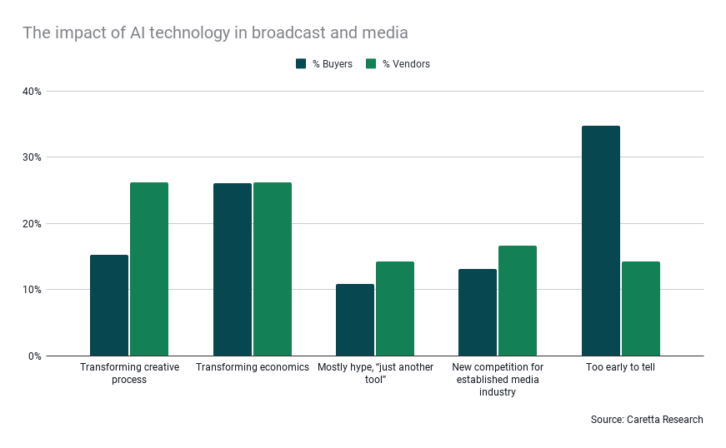
However, despite the cautious optimism expressed by respondents, there is a feeling that it is still “too early to tell” exactly how AI will impact the Media & Entertainment industry, particularly among those who are buying technology, and an attitude that the most effective use of AI is where it has already found success in recent years: speech-to-text and automation of software-based processing.
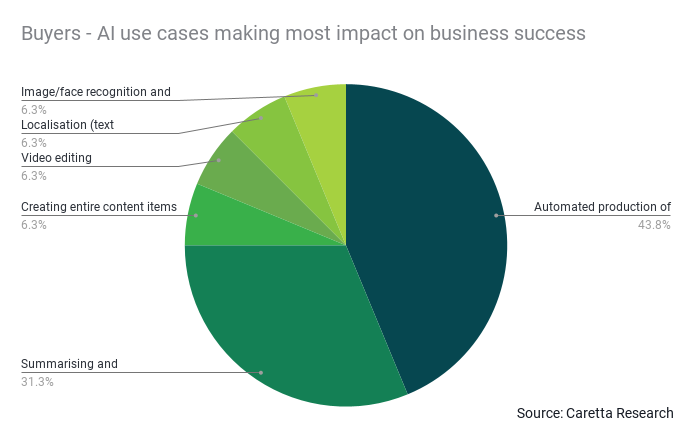
There’s been much talk about the possibility of AI replacing humans within the media
industry, but the research found that most respondents view it as something that helps humans with their work. Asked which business use cases AI will have the biggest impact on, 44 per cent of technology buyers said automated production of clips and highlights, followed by summarising and transcribing (speech-to-text) at 33 per cent.
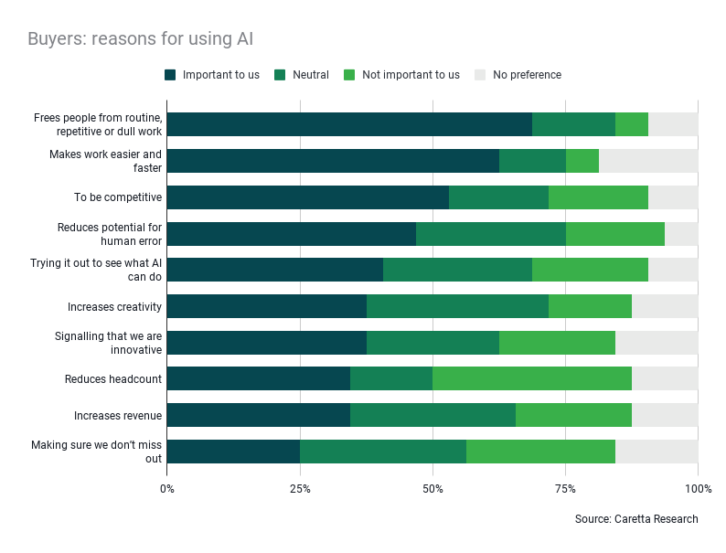
In fact, 61per cent of both buyers and vendors said they see AI replacing routine operational tasks, while 18 per cent of buyers see it replacing or assisting complex creative tasks.
Some 69 per cent of respondents who buy technology said they view AI as something that will free people up from routine, repetitive or mundane work, while 63 per cent said AI will make work easier and faster.
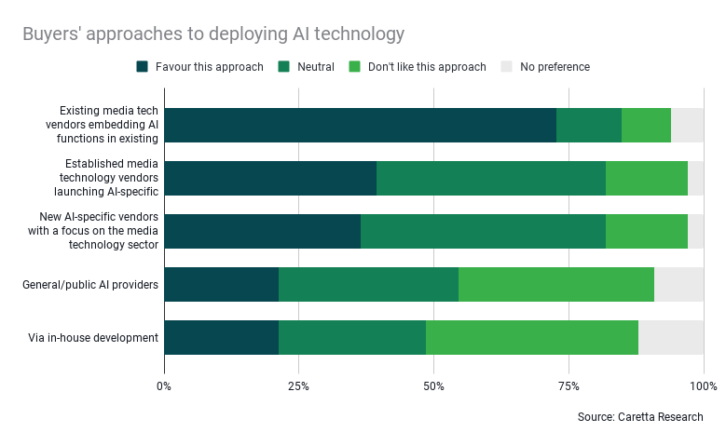
In terms of how broadcasters are approaching the deployment of AI, 73 per cent said they are looking to existing media tech vendors to embed AI functions in their existing products, while a further 39 per cent said they want established media tech vendors to launch AI-specific products.
 As to what’s holding them back from adopting AI, 43 per cent of respondents who buy technology cited the unavailability of people who understand how to harness the technology, closely followed by 41 per cent who said they were concerned about biased results.
As to what’s holding them back from adopting AI, 43 per cent of respondents who buy technology cited the unavailability of people who understand how to harness the technology, closely followed by 41 per cent who said they were concerned about biased results.
In terms of who will oversee and manage the impact of AI on media production—aka the so-
called “formal governance” of AI—this is where buyers and vendors diverged. While nearly a
third of both buyers and vendors said they currently have formal AI governance in place,
33 per cent of vendors said that they are not implementing AI governance and only 16 per cent of buyers said the same. This could reflect a traditional business approach to a technology still in its infancy and the reluctance of putting too many guardrails on an emerging market.
“This is the very first industry-wide research that cuts through the AI hype and focuses on
how broadcasters and media companies are actually using AI tools in their day-to-day
operations,” said Robert Ambrose, co-founder of Caretta Research. “It gives everyone at the
early stage of adopting AI a chance to check if they’re doing the right thing, and it lets
technology vendors see clearly the sort of AI capabilities their customers want to use.
“What stands out to me is how confident media and broadcast companies are when it comes
to adopting AI technology,” he added. “A very small proportion of technology users are
fearful of any negative impacts of AI on the creative process, such as a loss of creativity or
fears of inappropriate content being created. In fact, the biggest fear is nothing new for AI,
it’s simply the fear of change as AI brings in new ways of working and – potentially – new
competitors.”
The full findings of the survey will be released by TVBEurope and TV Tech in the coming
weeks.



